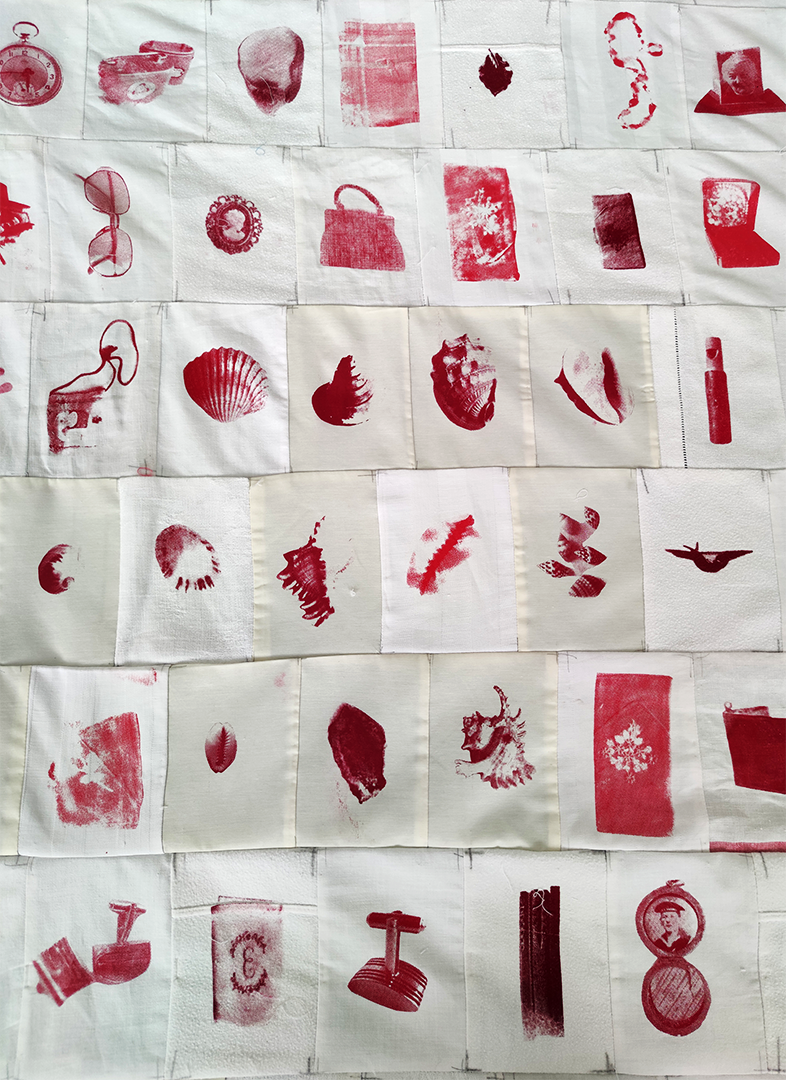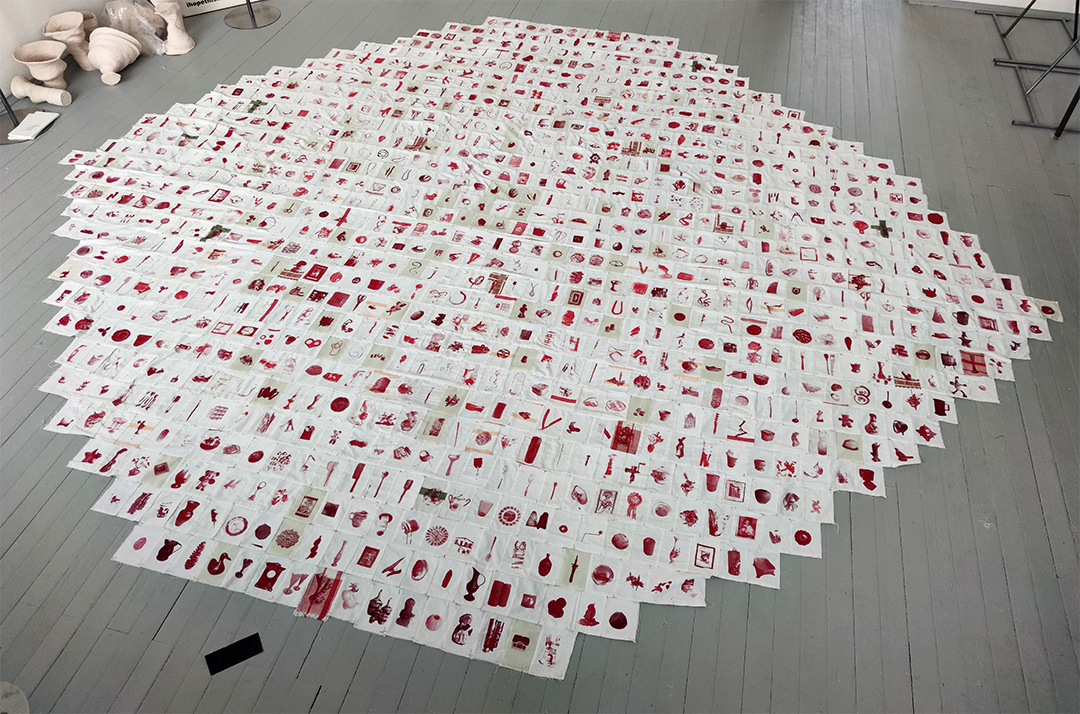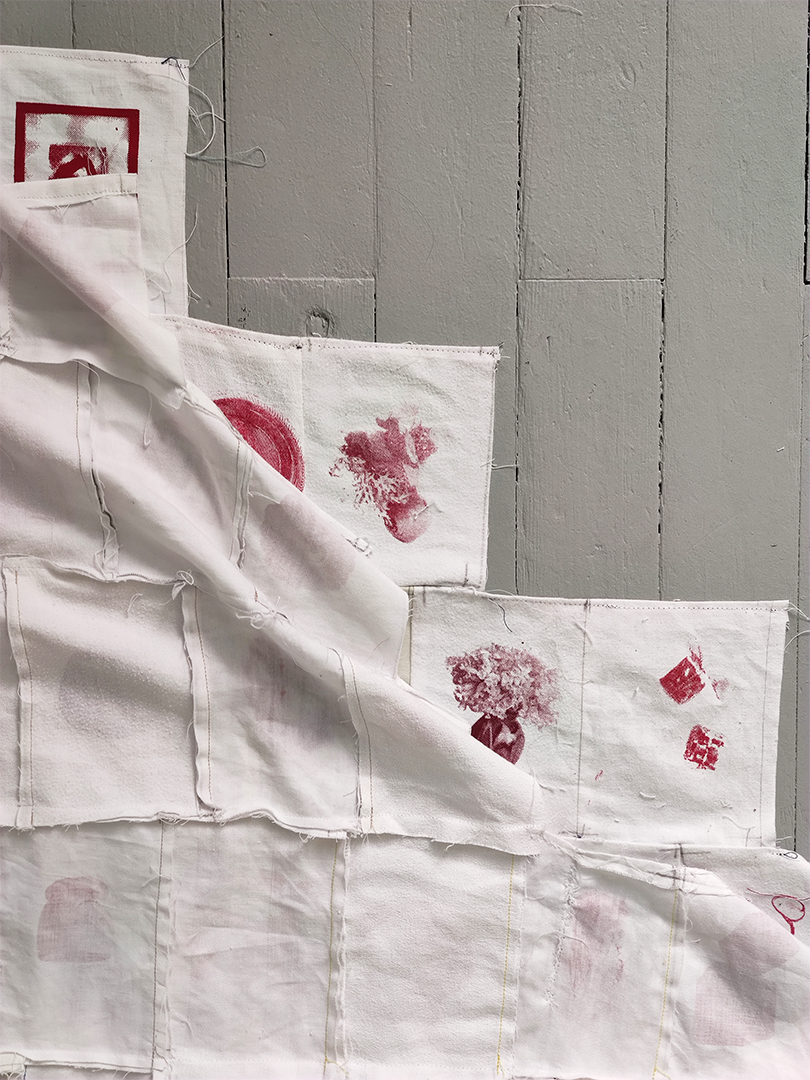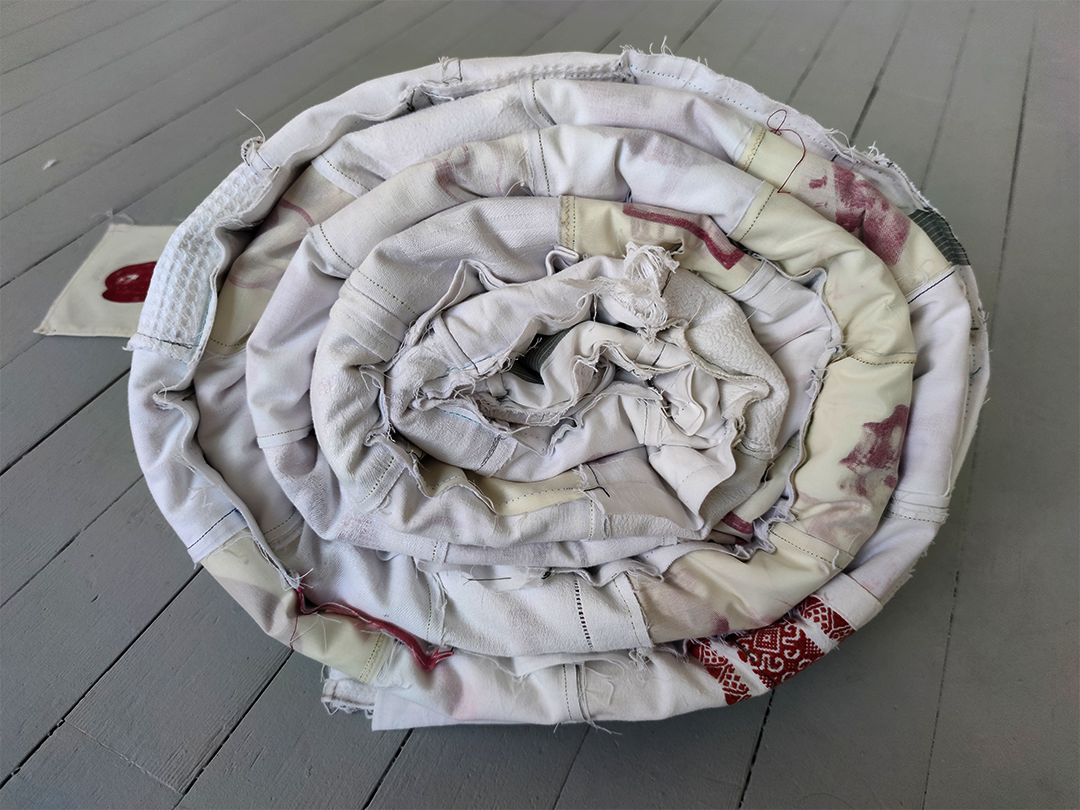Idee: Ilse Lafer
Projektkoordination:
Meike Giebeler
Ilse Lafer
Konzeption und Gestaltung:
Carla Selva – carlaselva.com
Ris Pascoe – pascoe.xyz
Umsetzung:
Lukas Siemoneit – lsiemoneit.de
Betreuung:
Prof. Maureen Mooren
Malin Gewinner
Redaktion:
Maren Schleimer
Das digitale Archiv-Projekt tendencies dokumentiert seit 2020 fortlaufend das künstlerische Schaffen an der HGB auf Basis der Absolvent*innen-Arbeiten.
Auf einer Karte sind alle Arbeiten der HGB-Absolvent*innen angeordnet. Farbig dargestellt ergeben sich sechs tendencies: solid, soft, dense, open, dynamic, static. Jede*r Absolvent*in hat für das eigene Abschlussprojekt von diesen sechs unterschiedlichen Zuschreibungen keine, eine einzige oder mehrere ausgewählt, die z. B. im Hinblick auf den Inhalt und/oder die Materialität der eigenen Arbeit, und/oder völlig anderer Aspekte erfolgen (z.B. wie fühlt sich meine Arbeit für mich an?). Auf diese Weise machen die Gestalter*innen Zuschreibungen der künstlerischen/gestalterischen Arbeiten auf verschiedene Weise interpretierbar und geben allen Künstler*innen die Möglichkeit, eine individuelle Bedeutung für ihre eigene Arbeit zu finden. Das Konzept von Carla Selva Matthes und Ris Pascoe schlägt damit eine offenere Neustrukturierung von Organisationssystemen, im Unterschied zur Unterteilung in Fachklassen oder Medien, hin zu einer assoziativen Repräsentation vor, die nach einem „common ground“ zwischen den Disziplinen sucht. Das Venn-Diagramm stellt alle möglichen Relationen der vertretenen Zonen dar. Die fachgebiets- und fachklassenübergreifenden Begriffe schaffen neue Nachbar*innenschaften und Verwandtschaften einzelner Arbeiten zueinander und geben in ihrer Gesamtheit möglicherweise Aufschluss über Tendenzen, die einen oder mehrere Jahrgänge auszeichnen.
1. Anbieter i. S. d. § 5 TMG
Hochschule für Grafik und Buchkunst / Academy of Fine Arts Leipzig
Rektorin Agnes Wegner
Wächterstraße 11
04107 Leipzig
Telefon: +49 (0)341 2135 0
Telefax: +49 (0)341 2135 166
email: hgb@hgb-leipzig.de
Internet: http://www.hgb-leipzig.de
Die Hochschule für Grafik und Buchkunst Leipzig ist eine Körperschaft des Öffentlichen Rechts. Sie wird durch die Rektorin Agnes Wegner gesetzlich vertreten.
2. Verantwortlicher i. S. d. § 55 Abs. 2 RStV
Rektorin Agnes Wegner, ebenda.
3. Zuständige Aufsichtsbehörde
Sächsisches Staatsministerium für Wissenschaft, Kunst und Tourismus
Wigardstraße 17 01097 Dresden
4. Haftung
Die Inhalte dieser Website werden mit größtmöglicher Sorgfalt erstellt. Als Diensteanbieter*innen sind wir gem. § 7 Abs. 1 TMG für eigene Inhalte auf diesen Seiten nach den allgemeinen Gesetzen verantwortlich. Wir sind gem. §§ 8 bis 10 TMG jedoch nicht verpflichtet, übermittelte oder gespeicherte fremde Informationen zu überwachen oder nach Umständen zu forschen, die auf eine rechtswidrige Tätigkeit hinweisen. Verpflichtungen zur Entfernung oder Sperrung der Nutzung von Informationen nach den allgemeinen Gesetzen bleiben hiervon unberührt. Eine diesbezügliche Haftung ist jedoch erst ab dem Zeitpunkt der Kenntnis einer konkreten Rechtsverletzung möglich. Bei Bekanntwerden von entsprechenden Rechtsverletzungen werden wir diese Inhalte umgehend entfernen.
Unser Angebot enthält Links zu externen Websites Dritter, auf deren Inhalte wir keinen Einfluss haben. Deshalb können wir für diese fremden Inhalte auch keine Gewähr übernehmen. Für die Inhalte der verlinkten Seiten ist stets der jeweilige Anbieter oder Betreiber der Seiten verantwortlich. Die verlinkten Seiten wurden zum Zeitpunkt der Verlinkung auf mögliche Rechtsverstöße überprüft. Rechtswidrige Inhalte waren zum Zeitpunkt der Verlinkung nicht erkennbar. Eine permanente inhaltliche Kontrolle der verlinkten Seiten ist jedoch ohne konkrete Anhaltspunkte einer Rechtsverletzung nicht zumutbar. Bei Bekanntwerden von Rechtsverletzungen werden wir derartige Links umgehend entfernen.
5. Urheber- und Leistungsschutzrechte
Die Einhaltung von Urheber- und Leistungsschutzrechten sowie das Layout der Homepage, die verwendeten Grafiken sowie die sonstigen Inhalte der Internetpräsenz der HGB Leipzig unterliegen dem deutschen Urheber- und Leistungsschutzrecht. Jede vom deutschen Urheber- und Leistungsschutzrecht nicht zugelassene Verwertung bedarf der vorherigen schriftlichen Zustimmung der HGB Leipzig oder der*des jeweiligen Rechteinhabers*in. Dies gilt insbesondere für Vervielfältigung, Bearbeitung, Übersetzung, Einspeicherung, Verarbeitung bzw. Wiedergabe von Inhalten in Datenbanken oder anderen elektronischen Medien und Systemen. Inhalte und Rechte Dritter sind dabei als solche gekennzeichnet. Die unerlaubte Vervielfältigung oder Weitergabe einzelner Inhalte oder kompletter Seiten ist nicht gestattet und strafbar. Lediglich die Herstellung von Kopien und Downloads von Internet-Seiten für den privaten, wissenschaftlichen und nicht kommerziellen Gebrauch ist erlaubt.
Die Bildrechte für die auf dieser Website verwendeten Bilder wurden nach bestem Wissen recherchiert. Sollten Sie sich, trotz aller Sorgfalt unserer Arbeit, in einem Bildrecht verletzt fühlen, wenden Sie sich bitte an websupport@hgb-leipzig.de.
6. Datenschutz
Diese Website unterliegt den Datenschutzbestimmungen der Hochschule für Grafik und Buchkunst/ Academy of Fine Arts Leipzig
https://www.hgb-leipzig.de/datenschutzerklaerung
Die HGB Leipzig sowie die im Rahmen der Hochschultätigkeit umgesetzten Maßnahmen werden mitfinanziert durch Steuermittel auf der Grundlage des vom Sächsischen Landtag beschlossenen Haushaltes.
-
2025
-
→ Meisterschüler*innen
-
→ Diplome
-
-
2024
-
→ Meisterschüler*innen
-
→ Diplome
-
-
2023
-
→ Meisterschüler*innen
-
→ Diplome
-
-
2022
-
→ Meisterschüler*innen
-
→ Diplome
-
-
2021
-
→ Meisterschüler*innen
-
→ Diplome
-
-
2020
-
→ Meisterschüler*innen
-
→ Diplome
-



